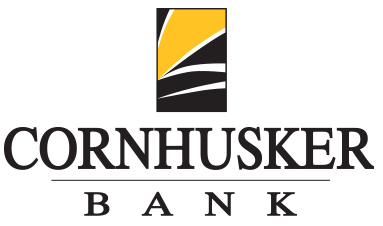Life has its surprises but paying for them shouldn’t be one of them.
Accounts for tomorrow’s health care needs.

|
When it comes to you and your family’s well-being, we understand there’s significant peace of mind associated with the confidence of being in top financial health. To help get you there, a Cornhusker Bank Health Savings Account (HSA) offers you the savings and convenience to make meeting the health care needs of you and your family easier.
Health Savings Accounts (HSAs) are a type of saving account allowing you to set aside money on a pre-tax basis to pay for qualified out-of-pocket medical expenses. You can claim a tax deduction for contributions you, or someone other than your employer, make to your HSA even if you don’t itemize your deductions on Schedule A (Form 1040). Contributions to your HSA made by your employer (including contributions made through a cafeteria plan) may be excluded from your gross income, helping you lower your overall healthcare costs.
You may roll over funds year after year, allowing you the flexibility to manage routine and unexpected healthcare expenses. Your HSA is “portable.” It stays with you if you change employers or leave the workforce. You are the owner of your HSA. Even though funds can only be used to pay for qualified medical expenses, you have control of the funds without being restricted by healthcare professionals or facilities.
Please refer to IRS Publication, 502 Medical and Dental Expenses and IRS Publication 969 HSA and Other Tax Favored Health Plans, for a complete listing of all qualifications and restrictions. For specific tax questions, please consult your tax advisor.*
Your Account Features
- No Minimum Balance requirements
- Tiered interest rates
- Ability to easily pay expenses by debit card, check, or bill pay
- Periodic reporting of your transaction activity (monthly and year-end reports)
- Access to our full suite of digital banking services to effectively manage your health expenses:
- Mobile Banking
- Debit Card Management with transaction spending insights
- Online Banking
- Bill Pay
- And so much more!
Wondering if you qualify for an HSA?
To be an eligible individual and qualify for an HSA, you must meet the following requirements:
- You are covered under a high deductible health plan (HDHP) on the first day of the month.
- You have no other health coverage except other health coverage permitted under IRS Rules
- You aren’t enrolled in Medicare.
- You can’t be claimed as a dependent on someone else’s tax return.
If you questions about a Health Savings Account at Cornhusker Bank, please contact a Personal Banker at 402-434-2265.
*This information is not intended to replace the advice of your tax and legal advisors. Cornhusker Bank is the Health Savings Account Custodian and does not give legal or tax advice. You are responsible for complying with the laws that apply to your HSA and are encouraged to seek the advice of a well-qualified tax advisor or legal advisor before opening your account.
HSA FAQs
What are the federal tax benefits of an HSA?
Contributions to an HSA are fully deductible. The earnings grow tax deferred, and distributions for qualified medical expenses are tax-free.
Do the tax benefits phase out at certain income levels?
Unlike many other tax breaks, there aren’t any income limits. Anyone under age 65 who has a qualified high-deductible policy can open an HSA.
How do I claim the federal tax deduction for my HSA contribution?
Contributions made by you, and by family members on your behalf, which do not exceed the maximum annual contribution amount, are deductible by you when determining your adjusted gross income for your federal tax return. You cannot deduct employer contributions, and these contributions will not count as wages for federal income tax purposes.
When can I make my HSA contributions and is there a deadline for contributions to an HSA for a taxable year?
Regular and catch-up contributions for the taxable year can be made in one or more payments, and at the convenience of the individual or the employer, at any time prior to the time prescribed by LAW (without extensions) for filing the eligible individuals federal income tax for the year, but not before the beginning of the year.
What’s the difference between the new HSA and the flexible-spending accounts? It seems they are for the same purpose.
The tax benefits of both plans are quite similar, but there are several differences. The biggest and most important difference is that your HSA balances can roll over from year to year and continue to grow tax-deferred.
Money in your flex plan must be spent by the end of the plan year or you lose it. You can open a flex-spending account only if the plans offered by your employer and you don’t need to have a high-deductible health insurance policy.
If my employer offers both, can I fund my flexible spending plan, too?
No. You cannot have an HSA if you use a flexible-spending account to pay health-care costs or if you have other medical coverage. However, if your plan restricts reimbursements to wellness care and vision and dental care, you can have an HSA too.
If I set up an HSA with my employer, what happens if I switch jobs?
You can keep the money in an HSA account even after you leave that job, similar to a 401K. But you will get stuck with a 10% penalty-plus an income-tax bill if you use any of the money for non-medical expenses before age 65.
What happens if I want to withdraw the money for non-medical expenses after age 65?
You won’t be hit with the 10% penalty if you use the money for non-medical expenses after age 65, but you would still have to pay income taxes on the money. Keep in mind that you can continue to withdraw money from the account tax-free for qualified medical expenses after age 65.
Do contributions to an HSA in any way affect one’s ability to contribute to an individual retirement account?
No. Your HSA contributions won’t affect your IRA limits. It is just another tax-deferred way to save for retirement.
How are distributions from an HSA taxed?
Distributions from your HSA used exclusively to pay qualified medical expenses for you, your spouse, or your dependents are excludable from gross income. Any other distributions not used exclusively to pay qualified medical expenses for you, your spouse, or any dependents are includable in your gross income and are subject to an additional 10 percent tax on the amount includable, except in the case of distributions made after your death, your disability, or your attainment of age 65.
What happens to my HSA in the event of my death?
If your spouse is the beneficiary of your HSA, the HSA becomes his/her HSA. If the beneficiary is not your spouse, the HSA ceases to be an HSA as the date of your death.

Stay Connected With Us